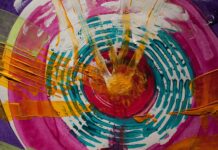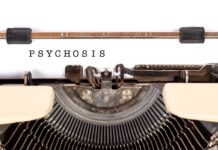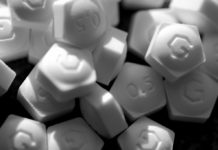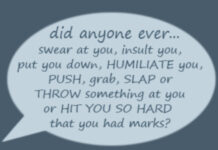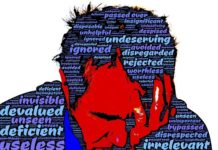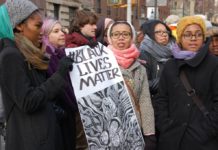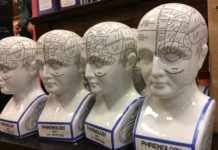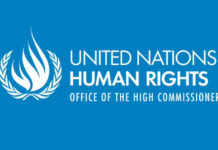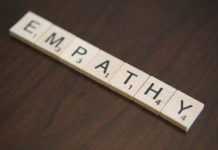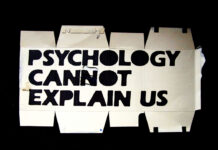Combining Art Therapy and Mindfulness for Refugees
A new article, published in The Arts in Psychotherapy, describes the ways art therapy and mindfulness have benefitted refugees and asylum seekers in Hong Kong.
“Silent” Forms of Child Abuse Strongly Tied to Depression
Psychological abuse and childhood neglect are strongly associated with depression in adulthood, according to a meta-analysis of childhood trauma and depression published in this month’s issue of the Journal of Affective Disorders. “The findings clearly highlight the potential impact of the more ‘silent’ types of childhood maltreatment (other than physical and sexual abuse) on the development of depression,” the researchers conclude.
De-Othering “Schizophrenia” by Placing it in Socio-Historical Context
Understanding schizophrenia as a non-enigmatic, understandable human experience goes against a history of institutional “othering” that has sustained psychiatric legitimacy and further marginalized service-users.
“Dad, You Were Right”: I Got Better When I Stopped Treatment
Through all the years that I was a mental patient, my parents were excellent advocates who constantly questioned what the docs were doing, even though my own faith in psychiatry was unwavering.... Amazingly, what cured me was not some type of “treatment,” but getting away from drugs and therapy.
Antidepressant Use Linked to Longer, More Frequent Psychiatric Rehospitalization
New study finds that antidepressants may negatively impact recovery after psychiatric hospitalization.
7 Years Off Psych Drugs: A Message to Those Labeled by Psychiatry (video)
Seven years ago, I completed a six-year process of withdrawing from six psychiatric drugs. That process was the impetus to start speaking up about what is happening in psychiatry with far too many of us being gravely harmed.
The ACE Survey is Unusable Data
Do the effects of trauma matter more, or a person's ACE score? I think this is unusable data that harms people when you gather it. Here's why.
Opening Doors in the Borderlands: An Interview with Liberation Psychologist Mary Watkins
MIA’s Micah Ingle interviews Mary Watkins about reorienting psychology toward liberation and social justice.
Study Finds Improved Functioning for ‘Schizophrenia’ Without Antipsychotics
Long-term treatment with antipsychotic drugs is currently considered the standard treatment for patients diagnosed with ‘schizophrenia.’ A new study challenges this practice, however. The...
Curing Schizophrenia via Intensive Psychotherapy
I believe that an Intensive Psychotherapy can lead to healing and, often, a cure of psychotic states. By cure I mean the cessation of delusions and hallucinations, and a gradual titration off of antipsychotic medication, with the cure lasting—even without continuing psychotherapy.
Psychosocial Explanations of Psychosis Reduce Stigma, Study Finds
A review of mental health anti-stigma campaigns finds psychosocial models are effective in reducing stigma, while biogenetic models often worsen attitudes.
Psychology Needs New Concepts and Healing Models for Racial Trauma
Contemporary empirical research explores new ways to conceptualize and heal racial trauma through anticolonial and sociohistorical lenses.
Researchers Argue that ‘ADHD’ Doesn’t Meet DSM Definition of a Disorder
New research questions whether the diagnosis of ADHD even meets the criteria for a disorder, as set out in the manuals used by the medical and psychiatric fields.
Constructing Alternatives to the DSM: An Interview with Dr. Jonathan Raskin
Dr. Raskin discusses psychotherapists’ dissatisfaction with current psychiatric diagnostic systems and explores alternatives.
PTSD in Withdrawal
Can withdrawal from psychiatric drugging be so terrible as to leave you with Post-Traumatic Stress Disorder (PTSD) — to somehow rearrange your psyche for the worse even once time and hard work have undone the damage caused by the chemicals? To so profoundly alter your core self that you acquire a new diagnosis meriting special considerations or further treatment in order to resume a normal life again? If the real definition of insanity is “repeating the same mistake over and over and expecting a different result,” then embracing a psychiatric diagnosis of PTSD as a result of psychiatric damage would surely make you “insane”.
United Nations Statement Criticizes Medicalization of Depression on World Health Day
"There is a need of a shift in investments in mental health, from focusing on 'chemical imbalances' to focusing on 'power imbalances' and inequalities"
Can Psychiatry Respond to Mad Activism?
Psychiatrist Mohammed Abouelleil Rashed explores a way forward for psychiatry in responding to the Mad activism of service users.
Therapist Empathy Predicts Success in Psychotherapy
An updated meta-analysis reveals that therapist empathy is a predictor of better psychotherapy outcomes.
An Alternative Perspective on Psychotherapy: It is Not a ‘Cure’
Kev Harding argues against conceptualizations of therapy as a ‘cure’ to an ‘illness’ and instead offers alternative approaches.
Recovery: Compromise or Liberation?
The 90s were labeled - rather optimistically - as the ‘decade of recovery.’ More recently, recovery has been placed slap bang central in mental health policy. Is supporting recovery pretty much good common sense? Or is the term being misused to pressure those suffering to behave in certain ways?
Social Vacuum
I remember the feeling, one of not exactly isolation but otherness. A sense that not only did I not fit in many places where I used to, but also that I lacked the energy to even try — to, like an actor, wear the skin of the old me for an hour or even a few minutes so that others would not feel uncomfortable in my quivering and clearly perturbed presence.
Traditional Healing and Psychosis vs. the Promises of Modern Science
As noted in Anatomy of an Epidemic, the prognosis for someone experiencing psychosis is far better in developing countries than in industrialized countries. Robert Whitaker and others posit that this is due to the treatment models used in the developing world, as well as to debility and chronicity caused by psychiatric drugs themselves. I think it's also important to explore traditional tribal and village based models of helping people experiencing psychosis and examine why they may be effective. Do these traditional societies know something we don't?
Why Social Isolation Leads to Inflammation
We are wired for community. If we disconnect, our bodies will call us back to the sense of human connection that we are wired for, using the unexpected language of inflammation.
From Self Care to Collective Caring
As a trauma survivor growing up in various adolescent mental health systems, I never learned any useful self-care tools or practices. I was taught that my current coping skills (self-injury, suicidal behavior, illicit drug use) were unacceptable, but not given any ideas as to what to replace them with. No one seemed to want to know much about the early childhood traumas that were driving these behaviors. Instead, I collected an assortment of diagnoses. I was told that I would be forever dependent on mediated relationships with professionals, and an ever-changing combination of pills. The message was that my troubles were chemical in nature and largely beyond my control.
Non-Pharmacological Interventions More Effective For Health in Schizophrenia
Review compares the effectiveness of pharmacological and non-pharmacological interventions for improving physical health outcomes in people diagnosed with schizophrenia.

